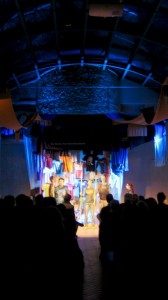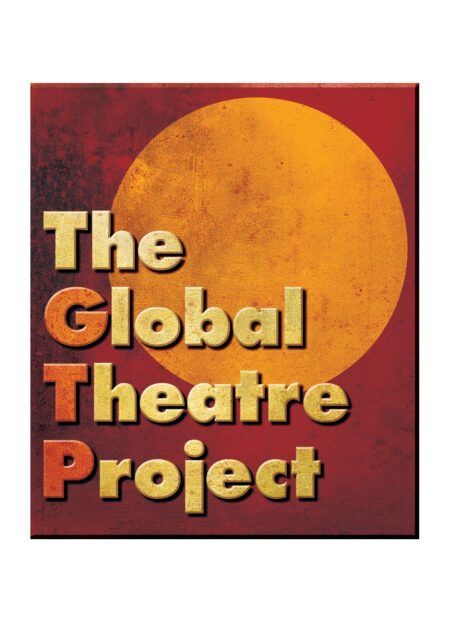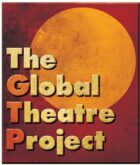Calling For An Evolution.
Evo-lu-tion: A gradual process in which something changes into a different and usually more complex or better form.
 There is a lot that theatre can do. But I believe, at its best, theatre can evoke evolution in society. And, at this moment, we are in sincere need of exactly that.
There is a lot that theatre can do. But I believe, at its best, theatre can evoke evolution in society. And, at this moment, we are in sincere need of exactly that.
We are living in a time when so much is at stake. The global ‘community’ seems to function perfectly for mega-corporations, governments, the military industry, but not quite so much for the average citizen. And yet we are affected by this globalization, both directly and indirectly. For us, the borders are becoming more closed and difficult to cross, our freedoms are being restricted for ‘our protection,’ our food supply is being poisoned for ‘our benefit,’ our wages are decreasing, our fears rising. The world is becoming smaller, yes, and we do connect through internet, this is true. We learn about what is happening in other parts of the world. We spend hours on Facebook and Twitter. And we do credit these social media sites with instigating revolutions. We recognize the power of collective action — even through cyberspace – to invoke change. But is true human evolution possible relying only on this cyber-environment to connect us?
Without intimate contact, we cannot truly come to know one another. Without the glory of creating together . . . which is what human beings do best . . . we will not advance as individuals or societies. We will regress.
It is not that I am calling for an elimination of our progress and advances technologically. But I am calling for an active recognition that, at the foundation of it all, we need to know each other. We need to experience directly and globally what we most value: compassion, understanding, joy, laughter, empathy, kindness, sensitivity, playfulness, celebration, self-expression, curiosity, imagination, patience, Love.
These instincts and faculties, I believe, we are all born with. As Nelson Mandela said:
“No one is born hating another person because of the color of his skin, or his background, or his religion. People must learn to hate, and if they can learn to hate, they can be taught to love, for love comes more naturally to the human heart then its opposite.”
Theatre, particularly, explores the caverns of the human heart and the expanse of our collective and individual stories. The live interaction between the artists and the sharing of their discoveries with the audience through language, visual art, music, choreography, passion and intellect stretches all involved toward the fullness of our miraculousness. At its best, theatre gifts all those present with a unique moment of time which exists only because they are there together. Never to be repeated exactly the same again. We leave the moment better somehow, larger, deeper, more alive and curious about ourselves and our world. We become sensitized and alert. We evolve with a knowledge that only comes from an experience which invites us into a space where we sit elbow-to-elbow with those we don’t know and patiently, listen. We let a world unfold into our eyes, ears, mind and heart. We see other human beings, who look so much like ourselves, soar for us to heights of human expression. To the joys, the humor, the loss, the weight of struggling with life as it is. And we leave feeling more alive in our bodies and, if given the opportunity, in our communities, our world.
The Global Project is not a theatre company. It is an offer of evolution. It is a love affair with theatre from the knowledge that, in the world in which we live today, an art form such as this – – presented in ways that involve and engage, question and observe, will celebrate what we can become: human beings living in harmony on this planet.
It is possible. But it requires an evolution.
And we are calling for it.



Brian Farish
Call, call, call. DO.
http://www.thethousandtongues.com